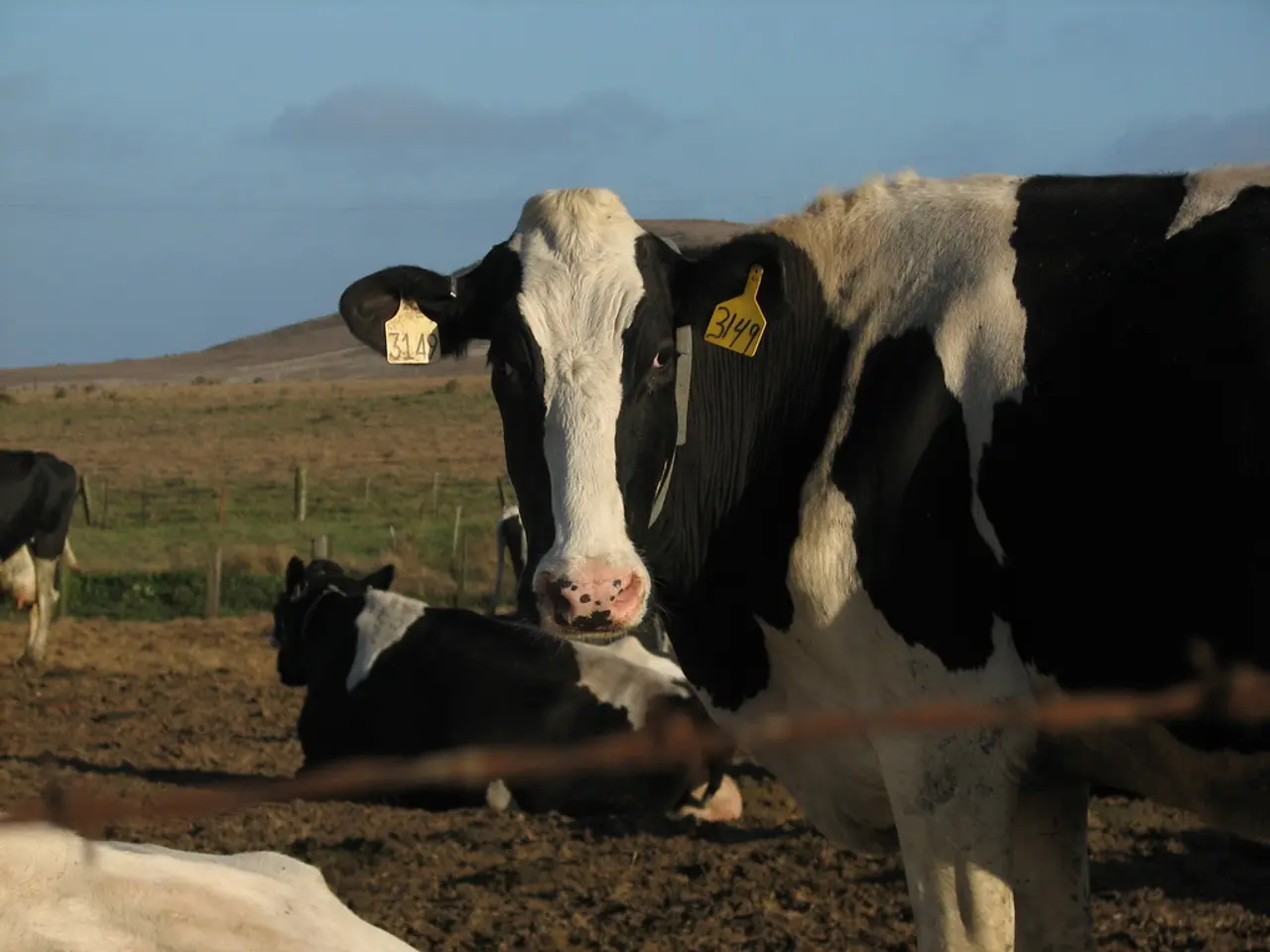Livestock proprietors advised to protect their animals amidst summer heat by ADAFSA.
Livestock owners in the UAE are advised to take extra care of their herds during the summer months, as high temperatures and humidity can lead to heat stress among animals. The Abu Dhabi Agriculture and Food Safety Authority (ADAFSA) has issued a series of guidelines to help protect livestock from the harmful effects of heat stress.
Shade and Water
One of the most important measures is to provide shade for animal enclosures, using any suitable means to protect animals from direct sunlight and reduce heat exposure. Additionally, ADAFSA advises spraying barns and animals with water, especially during midday and periods of extreme heat combined with high humidity, while ensuring animals remain shaded at all times.
To prevent overheating and evaporation, it's essential to supply animals with constant access to clean, cool drinking water placed in shaded areas. Furthermore, ADAFSA recommends shading water tanks in livestock enclosures to maintain moderate water temperatures.
Shearing and Feeding
Shearing wool and hair before summer, particularly for sheep and other woolly animals, can help lower heat stress. ADAFSA also suggests reducing the provision of high-energy feeds during summer, such as yellow corn, to ease heat stress.
Regarding feeding, ADAFSA recommends maintaining daily feed rations but dividing them into several smaller meals during extreme heat. This approach helps reduce the strain on the animals' digestive systems.
Vitamin Supplementation
To support animal health under heat stress conditions, ADAFSA advises regularly adding vitamins, especially Vitamin C, and Vitamins A, D, and E, to drinking water. This continuous supplementation helps ease physical strain on animals.
Preventive Measures
ADAFSA emphasizes the need to prevent animals from being subjected to hunger, thirst, or malnutrition. The authority also advises against moving animals during midday when temperatures peak and urges breeders to monitor animals closely for signs of heat stress to intervene promptly.
Additionally, ADAFSA urges breeders to maintain daily feed rations but divide them into several smaller meals during extreme heat. They also recommend monitoring water tanks and drinking troughs for cleanliness, shade, and protection from direct sunlight.
Awareness Programs
ADAFSA's ongoing efforts include raising awareness among breeders through guidance tools and outreach programs focused on the scientific and practical principles of livestock management. Their specialists guide breeders on improving herd performance, contributing to local food security.
ADAFSA's awareness programs promote good livestock management practices for increased production and profitability. By following these guidelines, livestock owners can help ensure the health and productivity of their herds during the summer months.
[1] Vitamin supplementation can vary depending on the species and individual animal's needs, so it's essential to consult a veterinarian for specific recommendations.
- In addition to providing shade and water, livestock owners may also consider shearing wool and hair from their animals before summer to help lower heat stress.
- Beyond basic care, it's advantageous for pet owners to explore health-and-wellness options like therapies-and-treatments for their animals, ensuring their overall well-being during the harsh summer months.
- ADAFSA also advises adjusting feeding routines, dividing daily rations into several smaller meals during extreme heat, to reduce the strain on an animal's digestive system.
- Recognizing the importance of proper nutrition and care, ADAFSA offers lifestyle resources and guidance to breeders to help maintain their herds' health and productivity during the summer months.
- Culture and lifestyle extend beyond human practices; as responsibile pet owners, it's essential to take proactive measures to protect our furry, feathered, or hooved companions from summer's harsh elements.




